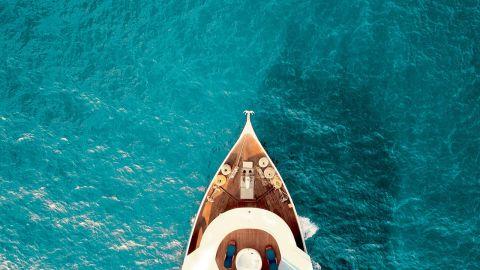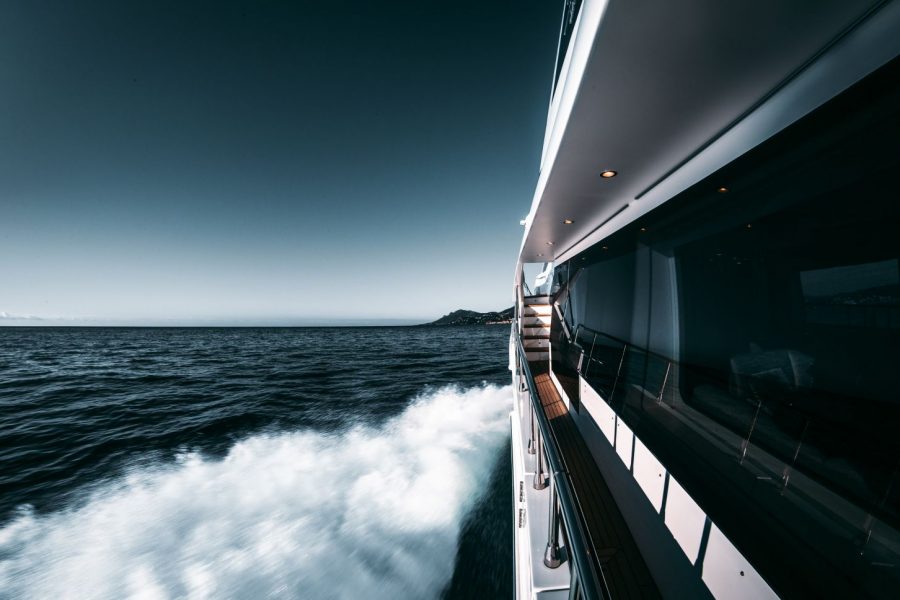Everything you ever wanted to ask a superyacht captain
Everything you ever wanted to ask a superyacht captain
By Georgia Tindale
When it comes to jobs that are bound to pass the ‘dinner party test’ – jobs which people are genuinely interested to hear more about over a glass of pinot grigio – it is obvious that ‘superyacht captain’ would rank pretty highly on that list.
A hugely responsible role in which every day is different, for many outside the industry, it may seem like one of those vocations that would be impossible to get into unless you knew all the right people. Never fear! We picked the brain of David Burke, captain of the 41.8-metre Baglietto superyacht Clicia, covering the best and worst bits of the role and his top tips for getting your foot on the ladder and landing your dream job at the helm.
How did you become a superyacht captain? How does it differ from being a captain of a different kind of vessel?
Like many people, I came across yachts by accident. I worked for a while on deck and in shipyards and over time developed a connection with the industry. It was a slow process but I stuck it out, and once I made a serious commitment and got on the formal training ladder things moved quickly.
I’ve never worked in any other maritime industry so have little idea what it would be like to be a captain on other vessels. I imagine commercial shipping would be more formal, administrative and navigation focused. Yacht captains have a lot of variety to deal with which is part of the appeal in some ways but I imagine this would also be tricky to manage if you are new to the industry and not accustomed to some aspects of it.
Describe a day in the life of a superyacht captain
It is so varied: no day is the same. You can get into familiar routines sometimes but you need to always be flexible and adapt to changing situations. I consult often with every department and the guests and owner, manage problem-solving in every area, manage logistics and liaise with various shore supports, agents, managers, charter, accounts, the family office, check the weather often, and so on. My winters are normally focused on maintenance projects and my routine is much more regular then. We are always planning ahead so are often working on the next charters/projects or the following season’s programme and beyond.
What are the most challenging aspects of your role and how do you balance it with family/shore-based life?
The balance with family life is probably the most challenging aspect. I have never been on summer holidays with my children for example and I have had family problems as a direct result of my demanding schedule and stressful periods at work.
However, I do my best to get as much time with family as I can and we really value the times when we are together. Modern technology and daily video calls are now very easy to do which helps, but nothing can replace the time spent away from loved ones. These sacrifices are made knowingly and it is something that you can do only if you really love your work. Your motivations must be strong, genuine and multi-faceted.
How would you describe your current crew?
Experienced, reliable and charter ready! We have a really nice group and we all get along really well together. I work hard at getting a great team together so when I have a good crew, I really value them.
How long have you been captain of Clicia and how would you describe your relationship with her owner?
I have been captain of Clicia for nearly 3 years. I went through an interview process with the owner and management, so we began with a formal relationship but we immediately bonded in a positive way. The owner/captain relationship should always have boundaries and formality but that doesn’t mean it can’t also be friendly and even familial as you get to know each other. I feel privileged both now and on previous yachts to have worked for some highly conscientious employers and very lovely people.
What would be your top tips for those looking to become a superyacht captain, especially if they come from outside the industry?
Work hard and build good relationships. Treat people with respect at every level, and try to take a step back, appreciate and enjoy the journey. I imagine that coming from other maritime industries to yachts is a culture shock but we all have common goals and I imagine getting a foot in the door is probably the hardest part. Adapting to the new challenges is something that most captains with good foundations can achieve. Manage your expectations and find the right opportunity to achieve your goals in stages if the dream job doesn’t come straight away!
Finally, are there differences between the external perception of being a superyacht captain and the lived reality?
I think that there are many different perceptions of captains (and there are many different types of captains) but catering to demanding expectations is often not easy and I would hope that people empathise with that side of things a bit.
We spend a lot of time in the background problem solving and it’s part of our job to make sure that these issues don’t become apparent. Our objective is to make sure that each client has a purpose-built special time on board. We consistently work hard, for long hours for long periods and in sometimes very challenging and demanding conditions to achieve that together with our crew.
Want to find out more?
If we’ve whet your appetite and you’d like to look for the latest superyacht captain job openings, take a look at our Yotspot jobs listings today.


